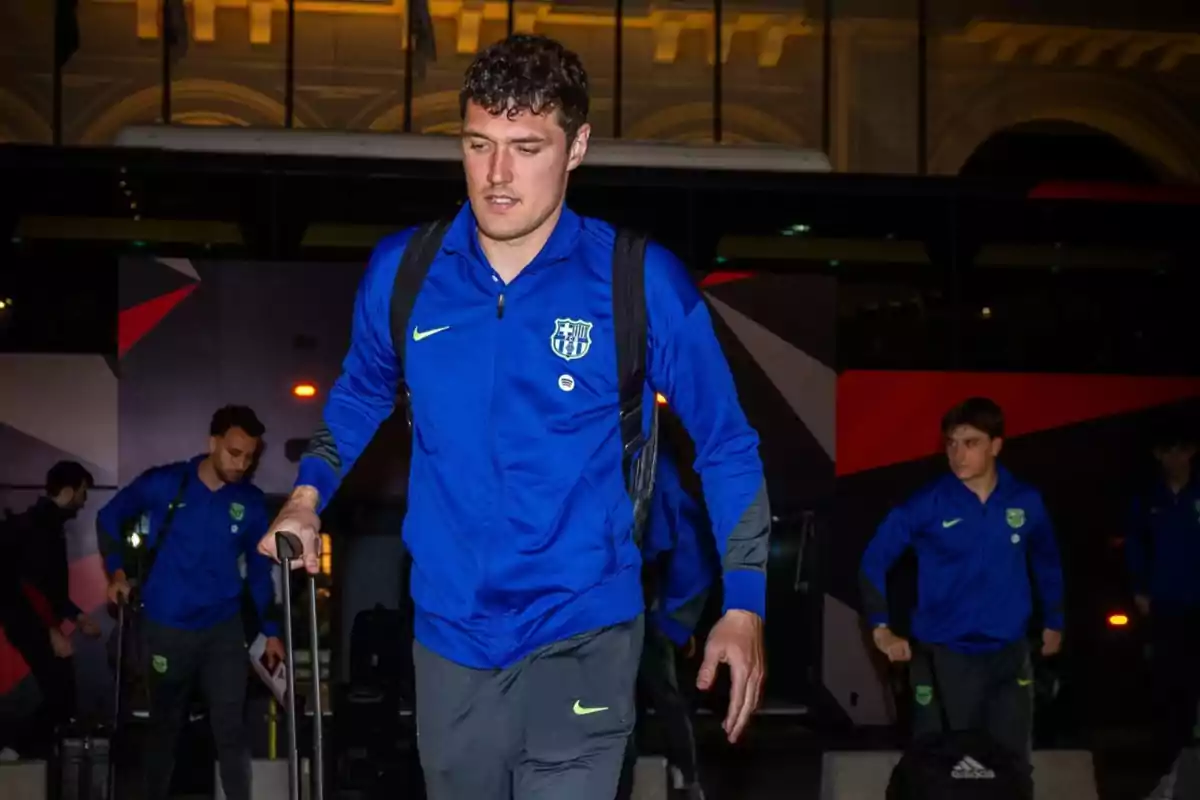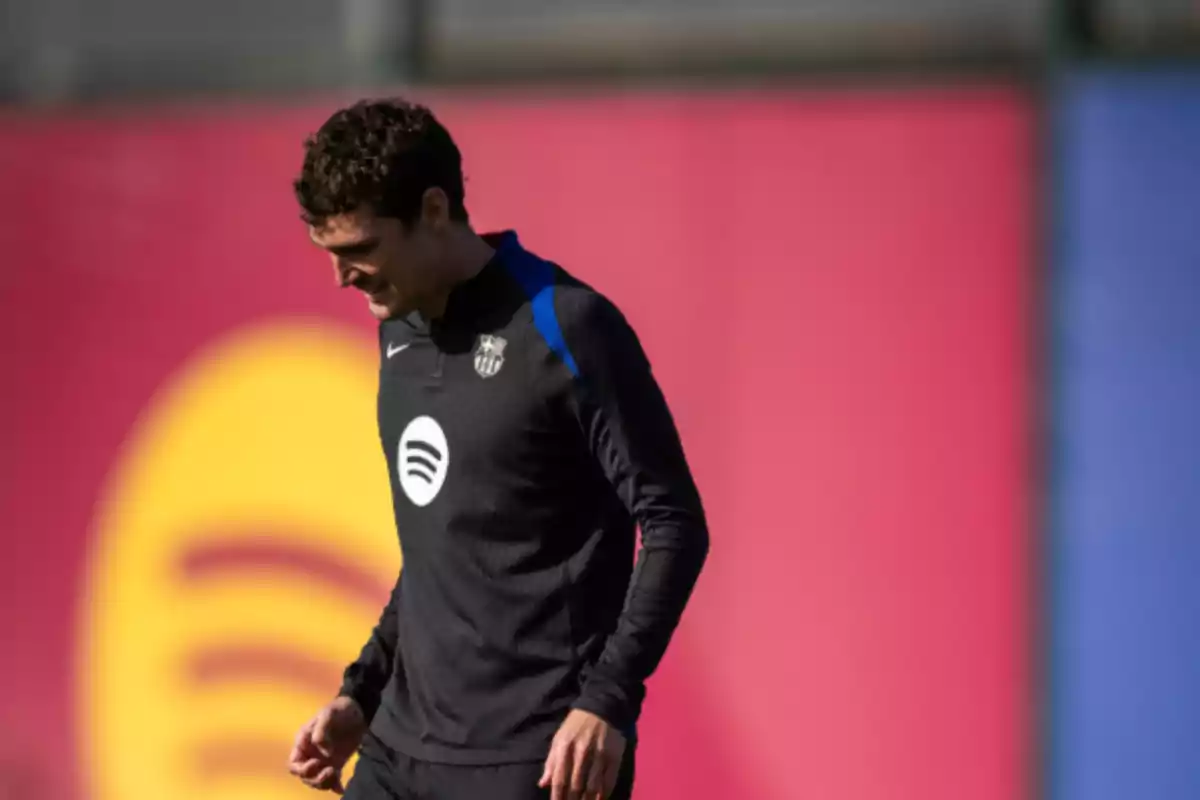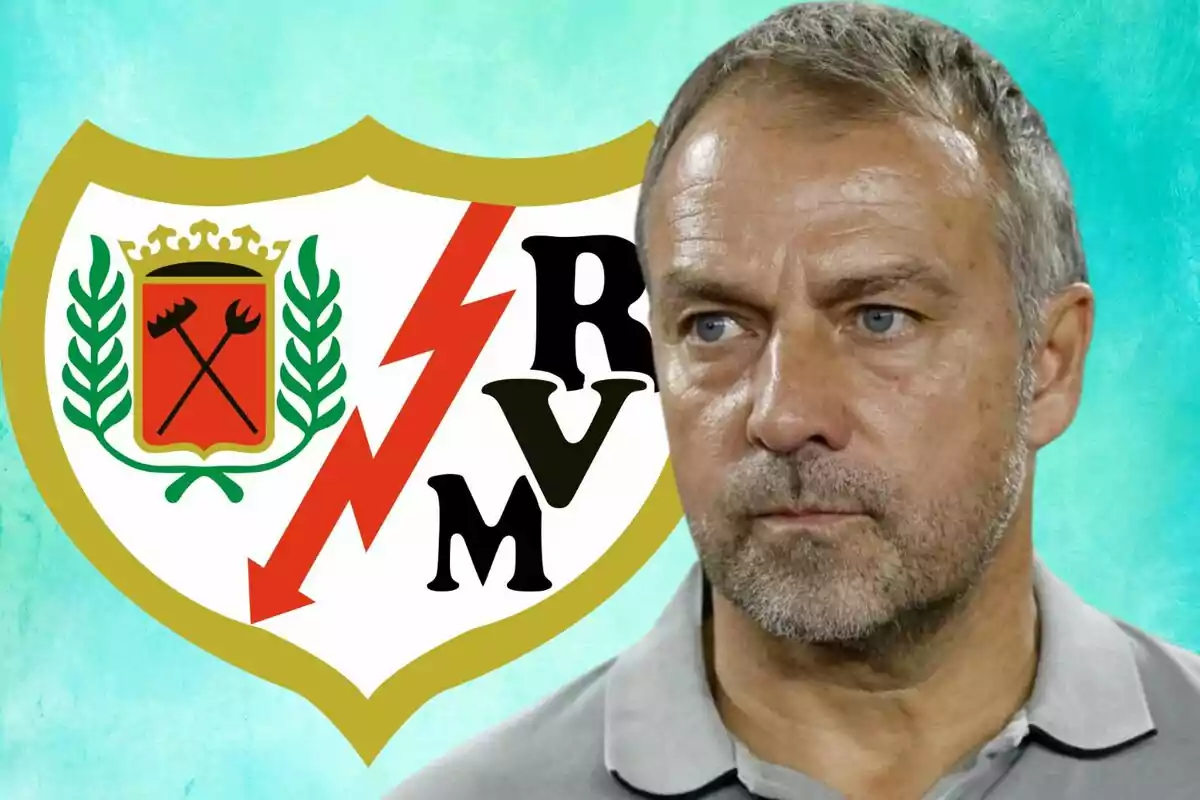On the third matchday of La Liga, in which Barça drew 1-1 against Rayo in Vallecas, Flick surprised with a tactical decision. The German coach fielded an unprecedented defense, with Andreas Christensen and Eric García as the starting center-back pair. It was an unexpected move, considering that in the previous two matches the chosen ones had been Ronald Araújo and Pau Cubarsí.

The experiment didn't convince. Barça showed many doubts in defense and made things easy for a Rayo Vallecano side that took advantage of the spaces to create clear chances. The backline appeared fragile and poorly coordinated, which forced Joan García, the starting goalkeeper, to multiply his efforts to avoid a defeat.
A defensive sieve
The contrast with the first two matchdays was clear. While with Araújo and Cubarsí the defense had shown solidity, against Rayo the feeling was the opposite: a disjointed backline that allowed too many attacks. Joan García kept the team afloat, confirming that he has landed on his feet in the blaugrana goal, but the weakness at the back was a source of anger for Flick.
The German had made it clear since his arrival that defensive solidity would be one of the keys to the project, what happened in Vallecas was a step backward. The lack of intensity, missed marks, and slow coverage made it clear that the Christensen–Eric pairing didn't work.
Christensen, the main target
According to El Nacional, Andreas Christensen's performance was what bothered Flick the most. The coach ended up angry with the Dane because, in his view, he played without the necessary intensity in a highly demanding match. His lack of aggressiveness in individual duels and the sense of disconnection during several stretches of the game set off the alarm.
Christensen had been a reliable player since his arrival at Barça, but performances like the one in Vallecas raise doubts about his continuity in the project. Flick demands maximum concentration in every match and doesn't tolerate lapses, especially in a defense that already lost Íñigo Martínez this summer and needs solidity.
Uncertain future for the Dane
The contractual context doesn't help either. Christensen's contract ends in 2026, in just one year, and the signals coming from his camp suggest that he could leave Barça.

At Barça, they know they must manage this issue well. If Christensen doesn't show an immediate improvement in his level, the board could choose to listen to offers in the next transfer window to avoid him leaving completely free. Meanwhile, Flick will have to decide whether to keep trusting him as a defensive option or whether to prioritize Araújo, Cubarsí, and Eric.

